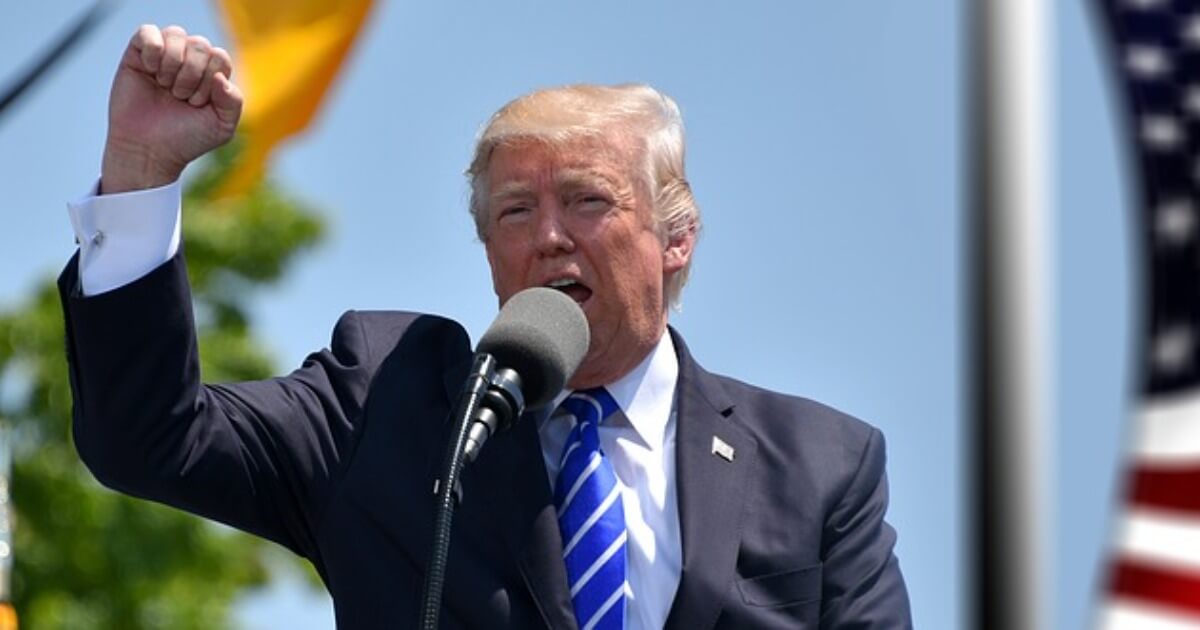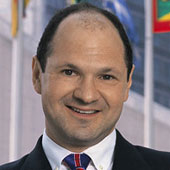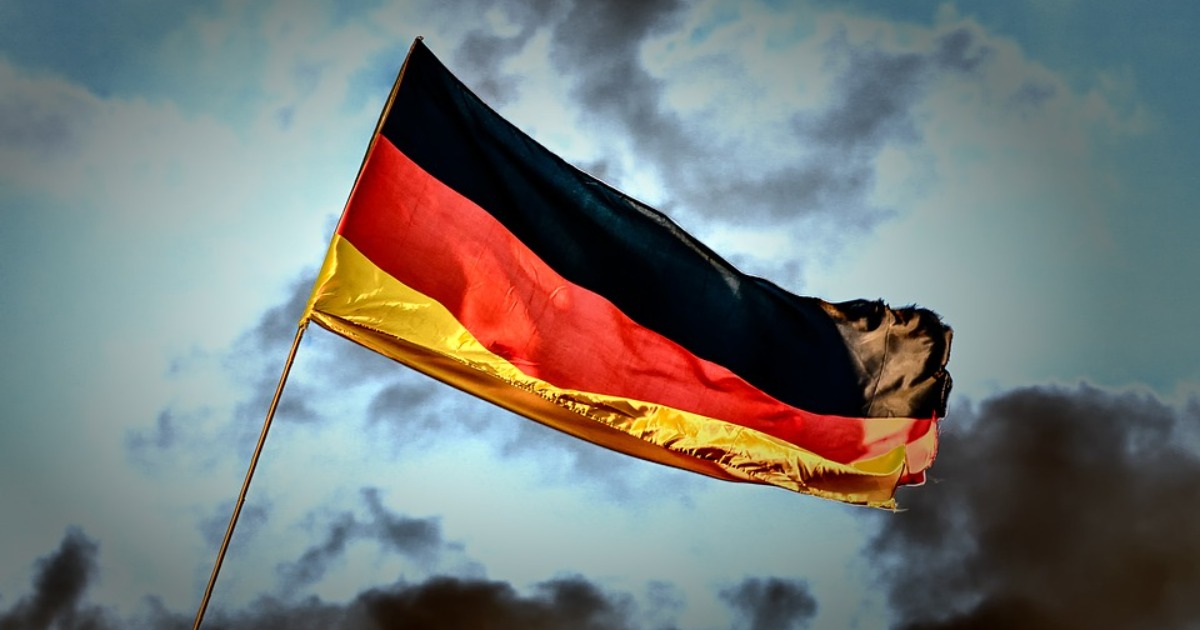Putin’s Russia and Trump’s U.S.: Converging in Resentment?
Russians are frustrated because they lost the Cold War. But why would right-of-center Americans, long proud to be the victors, feel a similarly deep resentment?
November 8, 2023

A Strategic Assessment Memo (SAM) from the Global Ideas Center
You may quote from this text, provided you mention the name of the author and reference it as a new Strategic Assessment Memo (SAM) published by the Global Ideas Center in Berlin on The Globalist.
In the 1970s, Soviet dissident Andrei Sakharov developed his theory of convergence – how the Soviet and U.S. systems would draw closer together.
The Cold War is over – and the Soviet Union is no more. And yet, there is one aspect in which the two Cold War superpowers have become similar. It is a remarkable convergence between Vladimir Putin and Donald Trump.
The Russian path to resentment
Their affinity has been obvious. Russian trolls and hackers (ran by the late Yevgeny Prigozhin, the head of the Wagner Group) interfered in the 2016 U.S. presidential election, as documented by the FBI.
When Trump won, the Russian establishment uncorked the champagne, and Putin propagandist Margarita Simonyan tweeted that she wanted to ride around Moscow with an American flag.
On his part, Trump often praised, and never criticized, Putin. He even invited him to Washington in 2018 – only a few months after Russian agents tried to poison Sergei Skripal, the former Russian intelligence officer, in the UK – using a nerve agent banned by an international treaty.
Why Putin is prolonging his war in Ukraine
Putin is prolonging his war in Ukraine in the hope that Trump will return to the White House, and cut off assistance to Kyiv. Seeing how the Trumpist-wing of the Republican Party is attacking the Biden Administration’s spending on Ukraine, it is clear that Putin’s hope is not misplaced.
What brings these very different men together is the deep resentment which their supporters feel toward the modern world, and for which those two men have become conduits and symbols. Not surprisingly, both Putin and Trump have not condemned the Hamas attack on Israel. On the contrary, the terrorist group’s medieval barbarism seems to find sympathy with both leaders.
Russian resentment is easy to understand. When the Soviet Union collapsed in 1991, Russian rock band DDT came up with a song “Born in the USSR”: “Yesterday you were the master of an empire, but today you’re an orphan.”
During the Cold War, Russians were citizens of a great nation, one of the two superpowers that was feared and respected in Berlin, London and Washington. But post-Cold War Russia became weak and irrelevant — dismissed by the late Senator John McCain as a gas station masquerading as a country.
In 1993, historian Alexander Yanov published an article titled “Weimar Russia” which charted the course of Russian political development over the next thirty years. Like the Germans after World War I, the Russians lost the war without suffering a foreign invasion – which proved fertile ground for “stab in the back” theories.
Also like the Germans during the Weimar Republic, Russia went through economic and financial crises, which soured them on the free-market system and, ultimately, on democracy.
Finding scapegoats
Germans, led by a pathological anti-Semite, used Jews as scapegoats. Russians, as members of a former imperial power, reserved their anger for their former colonies. Watching their erstwhile subjects in Eastern Europe so eager to throw off the Russian yoke and embrace the EU and NATO (and actually prospering as a result) were outraged.
Like most oppressors, they felt that they had been good for “the colonials.” They freed them from the German occupation, built roads and factories, provided education and promoted national culture and languages. And now the ingrates were biting the hand that fed them.
The resentment for Ukraine was particularly acute. Russians traditionally considered Ukrainians slightly slow-witted younger brothers who spoke a language that many regarded as corrupted Russian. Ukraine was Russia’s first colony, added in the mid-17th century. Them wanting to escape the bear hug of the “older brother” and to join the West was the ultimate insult.
Putin has a perfect personality to channel resentment. Growing up weak and undersized on the mean streets of Leningrad, he turned out a secretive, hypersensitive man who never forgets a slight, nurses grudges and exacts revenge.
He feels that Washington haughtily rejected his offer to strike a deal, and wants to destroy the U.S.-dominated international system and make the world respect and fear Russia (and him) once more.
Trump’s U.S. and the path to resentment
Russians lost the Cold War, of course. But why would Americans, the victors, feel a similarly deep resentment?
In the early post-war decades, white Americans were “Masters of the Universe.” Theirs was the richest country, and the land of freedom and opportunity. You could have a comfortable life holding a blue-collar job in an industrial world, own a house full of amazing gadgets and drive a car – which foreigners abroad could only dream of at the time.
The United States was also a fairly homogeneous nation – a melting pot of European immigrants and a minority of African Americans.
The foreign-born made up less than 5% of the population in 1970, a historic low. Now, immigrants comprise 15% of the country – and their number has rocketed from 10 million to 45 million.
Immigrants are also different. They no longer come from Europe – but from Latin America, Asia and Africa. They no longer look up to Americans, and are not so eager to assimilate. If he went to sleep in 1970, modern Rip Van Winkle would not have recognized his country if he now visited a U.S. shopping mall.
Only half the problem
This is half the problem, however. Many of these immigrants came to the United States with skills that are in greater demand, and better remunerated.
Not only do white, under-educated Americans feel like strangers in their own land. They also realize that in this is a United States in which they are no longer essential. This gives rise to the “replacement theory” which is so popular among right-wingers.
Trump is very different from Putin. He was born with a silver spoon in his mouth – and has always had money. While Putin was bullied, Trump himself has always been a bully.
Still, despite displaying the gaudy ostentatious wealth lower middle-class people admire, he harbors deep resentments – against cultured New Yorkers, established New York real estate developers and rich New York Jews who snubbed him, calling him short-fingered vulgarian and Queens-born casino operator, to quote the old Spy magazine.
These deeply-held resentments unite Trump and Putin, and make them perfect conduits for the deeper, and broader, resentments held by their supporters and constituents.
Takeaways
Russians are frustrated because they lost the Cold War. But why would right-of-center Americans, long proud to be the victors, feel a similarly deep resentment?
Deeply held personal resentments unite Trump and Putin – and make them perfect conduits for the deeper, and broader, resentments held by their supporters and constituents.
Putin is prolonging his war in Ukraine in the hope that Trump will return to the White House, and cut off assistance to Kyiv. Seeing how the Trumpist wing of the Republican Party is attacking the Biden Administration’s spending on Ukraine, Putin’s hope is not misplaced.
During the Cold War, Russians were citizens of a great nation, one of the two superpowers that was feared and respected. But post-Cold War Russia became weak and irrelevant — dismissed as a gas station masquerading as a country.
Germans, led by a pathological anti-Semite, used Jews as scapegoats. Russians, as members of a former imperial power, reserved their anger for their former colonies.
Russians traditionally considered Ukrainians as their younger brother. Ukraine was Russia's first colony, and it wanting to escape the bear hug of the “older brother” and to join the West was the ultimate insult.
A Strategic Assessment Memo (SAM) from the Global Ideas Center
You may quote from this text, provided you mention the name of the author and reference it as a new Strategic Assessment Memo (SAM) published by the Global Ideas Center in Berlin on The Globalist.


